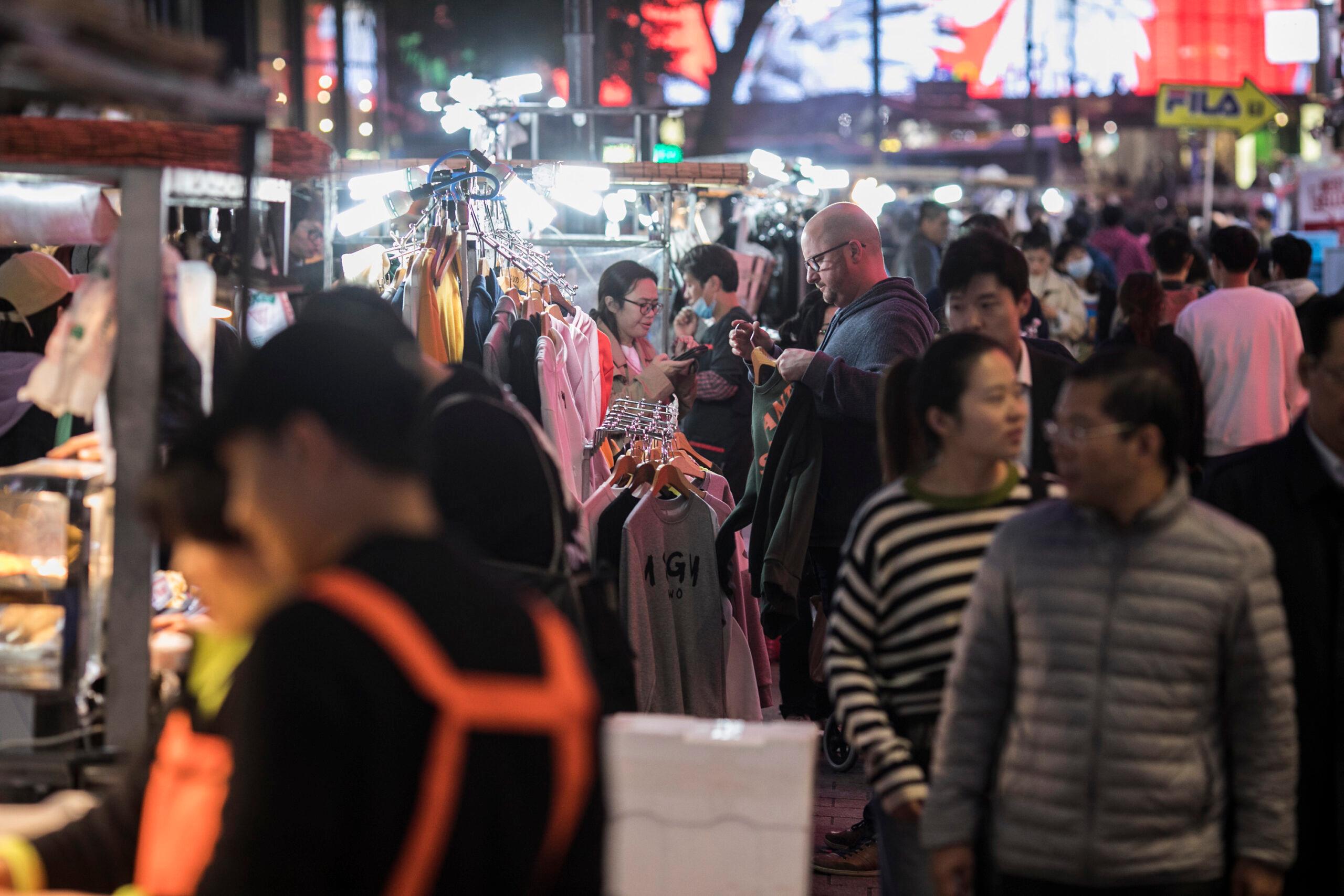Why Fertility Rates Are Plunging—in the U.S., South Korea, and Everywhere Else
Andrew Yeo joins to explain South Korea’s declining birth rate and why fertility affects just about everything else in society
Last year, there were 3,661,220 babies born in the U.S. That sounds like a lot. But historically speaking, it’s really not. It’s actually 15 percent below our peak in 2007. And it means America’s total fertility rate—the average number of babies a woman today is expected to have in her lifetime, based on current trends—is essentially stuck at its all-time record low. For decades, the U.S. birthrate has been below the so-called replacement level of 2.1. Today it’s around 1.6.
Sometimes, I feel a little weird talking about fertility and birth rates like they’re just ordinary numbers with decimal points, like monthly used-car inflation. Fertility is complicated. It is emotional. And it is private. But I’m fascinated by this issue because the collective private decisions of hundreds of millions of families really do shape the future of population growth. And there’s just no getting around the fact that population growth is one of the most important factors in determining economic growth, tax revenue, productivity, innovation, and public finance.
We’re in a moment now in world history where every major country is projected to have a shrinking population in the next 20 years. No country gives us a better glimpse of this impending future than South Korea. In 1960, the average Korean woman had six children. Today, Korean woman average less than one child. Today, the country has the world’s lowest fertility rate.
Today’s guest is Andrew Yeo, a senior fellow at the Brookings Institution’s Center for East Asia Policy Studies and a professor of politics at The Catholic University of America in Washington, D.C. In this episode, we look at this thorny and important issue by first zooming in to South Korea, where Andrew gives me an education on a country I’m extremely curious about, but frankly know very little about. And then we zoom out and talk about how South Korea is a canary in the coal mine for the rest of the planet when it comes to the many ways that fertility rates affect just about everything else.
If you have questions, observations, or ideas for future episodes, email us at PlainEnglish@Spotify.com. You can find us on TikTok @plainenglish_.
In the following excerpt, Derek and Andrew Yeo talk about the declining birth rate in South Korea and what it might have to do with the country’s culture of work and productivity.
Derek Thompson: In the open that I just recorded, I talked about the breaking news on U.S. birth rates, which are just about at their all-time record low. I want to put a pin in America right now, and I’m going to come back to the U.S. at the end. I want to talk to you about South Korea, which has not just among the fastest-declining birth rates in the world, but also, to my mind, the lowest fertility rate in the world. Before we get into why this is happening, Andrew, how would you summarize what’s happening in Korea?
Andrew Yeo: Right. So it’s not something to take pride in that you’re no. 1 in terms of having the lowest birth rate in the world, but there’s a confluence of factors that are driving this trend. And it relates to changing attitudes towards work. It’s related to the high cost of education and just the cost of living, particularly in cities like Seoul, the capital and the largest city. It’s also related to changing trends related to marriage. I think with more women in the workforce and then also women thinking about their careers, they’re delaying marriage. And actually in the last 10 years, the marriage rate has dropped by about 35 percent. So that also means less children, but there’s still a stigma of raising children on your own.
So it’s work, it’s high cost of education, high cost of living and housing. And I just think one final piece of this is, many like to note how South Korea has grown rapidly, and it is a tremendous success story that I think South Korea wants to tell the world. And many countries want to emulate the secret sauce behind South Korea’s economic development. But it developed so rapidly that you have to keep in mind that the pace of societal change has just occurred so rapidly. And I think one of the side effects has been this declining birth rate.
And I was looking at the statistics in the 1970s. The number of children that the families bore was between four and five. And so in 40 years, you go from four to five children to having less than one per household. So part of that, I think, is just the rapid changes that have taken place in South Korean society in such a short period of time.
Thompson: I think that’s a fantastic overview. To pivot off of the very last thing that you said, it really struck me when I was looking at comparative fertility rates in South Korea versus the U.S. that in 1960, Korea had roughly two times more children per woman than the U.S. And today, the fertility rate in the U.S. is almost, or roughly, twice as high as Korea. So it has flipped in a really remarkable way, even as both those numbers have come down. You set out a really good, I think, menu of explanations for what’s happening: work, cost of education, marriage, and some cultural things. Let’s start with work.
A couple years ago, I wrote an essay for The Atlantic about a phenomenon that I called workism. And workism was my coining for this idea that in many places in the U.S., especially among the elites, and also in other places around the world, lots of people who had turned away from religion and become more secular had made work the centerpiece of their life in a way that almost seemed to replace organized religion. Like the things that people historically sought from organized religion, whether it was self-actualization or community, transcendence, meaning in life, they now sought those things from a career. South Korea has one of the longest work weeks in the developed world, and I found you in part through an article that linked the declining fertility of South Korea with this phenomenon of workism. So tell me a little bit more about the culture of work in South Korea, how unusual you see it relative to other developed countries, and how it might play a role in declining fertility.
Yeo: Sure. Koreans work very hard, and they do have one of the longest work hours in the world. But I want to emphasize that there’s a difference between work, though, and also productivity. Because I think Korea is also a productive country. But let me just give you one anecdote. So I remember when I was in Korea, this is about 10, 15 years ago, and I wanted to hang out with a friend. I was a student, so I had more time. He said, “Oh no, I got to be in the office.” I was like, “Well, are you done with your work?” And he said, “Yes.” And I said, “Well, when are you going to leave?” He said, “When the boss leaves.” I said, “When is that going to be?” He says, “That’s about 9 or 10 p.m.” And so part of it is that, yes, Koreans work very hard, but there’s also this culture that you want to show others that you’re working hard as well.
In this case, it looks bad if you leave before your boss. So everyone in the office is just staying until late, even if they’re not necessarily doing work. So that’s what I mean by this differentiation between doing work and then being productive. But that being said, I do think Koreans take pride in that they work these long hours, and the work itself, work life, in a sense, becomes a family. I think it’s changed since the pandemic a little bit, but if you’re working in a business environment, you get off work at 9, and then you’ll go out for a late dinner, and then you’ll go to have drinks, maybe one round, maybe two rounds, maybe you’ll go to karaoke. And it’s not necessarily every night, but it’s this idea that you are with—it is not work, it’s even after work—but that you’re spending a lot of time with colleagues in this setting. And it means that you’re not getting home, you’re not productive in the other place, in the bedroom.
And so we see that people have really prioritized work, not just for the sake of work, but it becomes, as you said, like a replacement for religion. Work in some ways becomes an idol, but it’s also where your social life begins to revolve around as well too. And you feel that if you don’t stay late, if you don’t go to the dinners—it’s called hweshik in Korean—but the group dinners, that somehow you’re going to be left out. And that’s also something that’s cultural because in Korea, you tend to stick together with the group. You do things as a collective. So there’s these pressures to stay long hours at work. A, because I think Koreans generally do work hard. There’s a strong work ethic. But B, because there’s also social pressure to stay in the office longer and then to hang out even beyond office hours.
This excerpt was edited for clarity. Listen to the rest of the episode here and follow the Plain English feed on Spotify.
Host: Derek Thompson
Guest: Andrew Yeo
Producer: Devon Manze
Subscribe: Spotify

